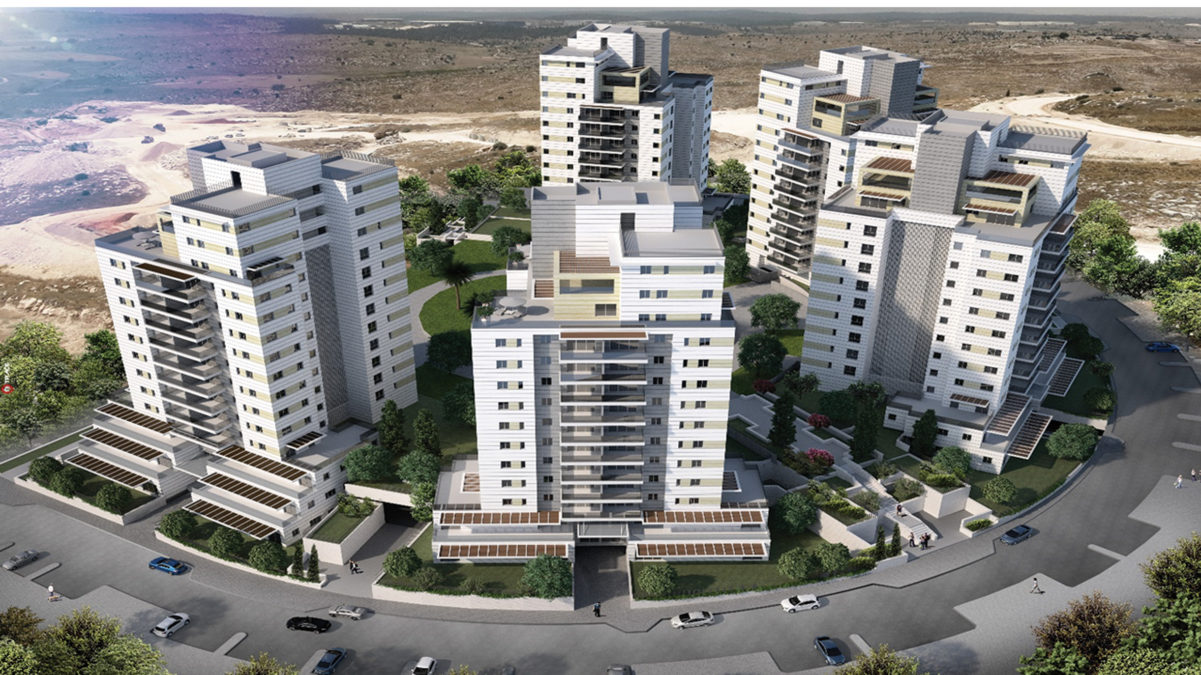
Israel

Ten reasons why 2021 is the ideal time to Invest in property in Israel
If you’ve been on the fence about investing in Israel, now might be a good time to get off – and fast. Jewish people have always had compelling emotional reasons for wanting to buy real estate in Israel, but they didn’t always provide a strong enough push to take on the significant financial commitment.
2021 will be the year when all that changes!
If you follow the Israeli real-estate market, you already know that there has never been a significant dip but today, more than ever, there are sound financial reasons to make that long-considered investment in Israeli real estate (or add to your existing portfolio).
1. A robust, pandemic-proof property market
Israel is known as the land of miracles, and this is certainly true where the real-estate market is concerned. As chaos reigned in housing markets across the world, sales of property in Israel continued to grow throughout 2020. In the month of December, for example, there were more real-estate transactions in Israel than in almost any other month in the country’s history, with about 13 400 apartments sold – this in spite of a national lockdown!
Property prices across Israel also rose during the pandemic. In October, property prices increased by 4.1% in Jerusalem, 3.6% in the south of Israel, 3.4% in Tel Aviv, 3.3% in the central areas of the country, and 3.2% in the northern region compared to prices in the same month in 2019 – miraculous indeed!
2. Investors are voting with their wallets
Investors have been buzzing enthusiastically around Israeli real estate in recent years, and this trend is showing no sign of abating, notwithstanding the pandemic. Sixty five percent more people invested in real estate in Israel in December 2020 than in the same month of the previous year. That equates to about 2 500 investment purchases in one-month alone.
Those buying for investment purposes tend to be shrewder than those buying a family home. Investors are more likely to consider economic factors over emotional or practical ones. The spike in Israeli real-estate investment thus shows a massive vote of confidence in the strength of the market.
3. Record low interest-rate levels plus cheap mortgages
A winning combination of low interest rates and cheap mortgages is pushing up buying activity. Recent changes to Israeli law mean that purchasers can now take the lowest-rate mortgage on up to two-thirds of the mortgage value (as opposed to up to a third of the mortgage value as specified by the old law).
With interest rates standing at an extremely low 0.1% at the time of writing, this makes for very favourable buying conditions and extremely high demand.
4. Limited development raises demand
Due to the COVID-19 pandemic, the Israel Land Authority didn’t operate to full capacity in 2020 and, as a consequence, less land was released for new project development. In fact, the authority sold only enough land to build about 5 500 apartments in the first three quarters of 2020 – that’s 15% less than in 2019!
This dramatic drop in new development will ensure a robust market in which demand remains exceptionally high.
5. Significant tax breaks for non-resident purchasers and second homeowners
Tax rates for investors are the best they’ve been in a long time.
This past July, Finance Minister Israel Katz announced yet more favourable tax conditions for real-estate investors. Purchase tax was significantly reduced to 5% on a property valued at up to 1.292 million shekels, 6% on an amount above 3.8 million shekels (you can view the entire scale on the Israel tax authority website). By way of comparison, former rates started at 8% on the price of an apartment up to 5.34 million shekels.
6. “Vacci-nation” sparks faith, optimism, and further investment
Israel’s response to coronavirus has made it a benchmark of excellence on the world stage.
There is optimism that the current restrictions will soon be a distant memory, which is doing wonders for Israel’s public relations.
The perception that Israel is a third-world country no longer rings true. Not just because Israel leads the world in the vaccination race, but also due to the high number of successful startups the country has spawned and the massive influx of investment into the “startup nation” ($9.5 billion [R141.6 billion] in 2020 alone.)
As confidence in the country rises, so does investment in Israeli real estate from overseas, causing a positive chain reaction in terms of value.
7. Unrest and uncertainty fuels aliyah
Ever since the Law of return in the 1950s declared that “every Jew has the right to come to this country as an oleh”, Jewish people have found a safe haven in Israel whenever trouble brews.
Over the years, the country has welcomed several waves of aliyah from various parts of the world, and in today’s troubled times, demand for aliyah is high again. Non-profit organisation Nefesh B’Nefesh has reported a more than 100% increase in requests about aliyah since the start of the pandemic.
New flexible working styles (triggered in part by the pandemic) have also made making aliyah more realistic for those who wish to keep their employment overseas. Add to the mix the fiasco of the recent United States elections, the Capitol Hill riots, rising antisemitism in Europe, and talk of a looming world recession, and you have the explosive mix that fuels aliyah.
Whenever there is an influx of people into a country, demand for housing goes up, and this is what we are witnessing.
8. A volatile stock market means renewed interest in real estate
Stocks have long been considered a riskier investment, albeit with the potential for high returns. In times of volatility, however, many investors seek out more stable places to put their money.
Real-estate investment has long proven to be resilient and stable, even in the face of political and financial turmoil, and this is igniting renewed interest in real-estate investment in many parts of the world, especially in Israel.
If you live outside Israel or own real estate in other parts of the world, this is a great time to hop on the Israeli real-estate wagon and diversify your portfolio.
9. Peace deals to create thriving Middle East “super-hub”
Ground breaking peace deals with countries such as the United Arab Emirates (UAE) and Bahrain are expected to result in a strong and vibrant regional economy.
The “new” Middle East will abound with investment opportunities, new businesses, and an increase in hotels and tourism.
Businesses are already flocking to the area, and deals are being signed as we write this blog. The agreement with the UAE alone is expected to create $4 billion in trade a year and 15 000 new jobs.
10. The rise of the Airbnb rental model
Excellent weather, miles of gorgeous beaches, and a mature and bustling tourist trade have made Israel a long-time favourite vacation hotspot, especially for Jewish people from across the world.
Once lockdown restrictions lift, tourists who have been denied entry for more than a year will come flocking in desperate need of their “Israel vacation fix”.
Since the advent of COVID-19, many tourists have been looking for alternative accommodation to hotels, sparking renewed enthusiasm for the Airbnb-style rental. Many companies have replicated the model, and vacation apartments are proving popular in Israel. If your intention is to rent your investment property as a short-term rental, your chances of finding tenants and securing a good rental income have never been higher.
The influx of olim to the country means that demand for long-term rentals are high as well. Landlords in Israel can expect steady yields on long-term rental properties and, as aliyah increases, the rental market is expected to go up too.
A magical combination
High rates of aliyah, strong investment activity, low interest rates, cheap mortgages, and a bright economic future make Israel a seriously desirable place to be in 2021 and beyond.
Whether you actually want to live here yourself or just get your foot in the door of the Israeli real-estate market, it would be hard to find better investment conditions than those in 2021.
There is no reason to delay any longer – strike now while the iron’s hot!
For more HOLD projects go to https://hold.co.il/projects/
Book a call with Hold today!






